-
Content Count
64 -
Joined
-
Last visited
-
Days Won
9
Posts posted by Jim McKeeth
-
-
On 5/22/2024 at 4:12 PM, Tom F said:I suppose it's likely I did something to cause this problem. But, that it happened on a clean install of D12 surprised me. It's hard to imagine how the problem came to be.
But, I'm glad it's behind me. 🙂I would be concerned... This sounds like you have something else causing trouble. It could be an indication of some corruption in your installation, or some other software that is causing the trouble.
If things are working then no need to mess with it, but I would recommend using this as motivation to make sure you have a good backups of your data, so you will be ready if you need to create a fresh Windows install sometime soon.
-
 2
2
-
-
It's been a long time since I've done much development with Windows services. I'm aware of the trick of creating a non-service version of the project, but sometimes that introduces subtle changes. I seem to remember a Host Application that would restart the service and then attach the debugger to the service. I know it is a little more complicated then that since you need to stop the service before compiling.
I imagine it worked something like this:
- Run from IDE
- Compiles
- Automatically stops service
- Links to EXE (or maybe it deployed it....)
- Automatically restart service
- Attaches debugger
- Productivity
Is there a tool like this already? It might have been an in-house tool, or a fever dream.... All options are equally likely. If it was the latter two then I might try building it again.
Also, is there a list of macros like $(SanitizedProjectName) that are available in the IDE? I only found one mention of that one in the DocWiki, and that was only about a related bug fixes. There is the Transfer Macro list, but I believe some of those are specific to the Tool Properties, and it is still missing others like $(platform), $(target), etc. Completely unrelated, but there is a weird behavior I just noticed in the Tool Properties dialog. When you drop down the Macro's list, the edit boxes and labels all blank out. If you click the Insert button then it puts the dialog in a weird state too.
Thanks!
-Jim
-
tag as String
in VCL
33 minutes ago, Remy Lebeau said:IDK what WriteTagString() is trying to accomplish. It is converting characters into bytes, completely ignoring the pointer that is inside the string.
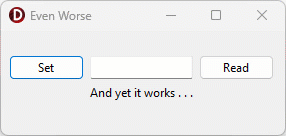
Convert the string into an array of AnsiChar, which is just an array of bytes, which is absolute to a NativeInt....
type TBadIdea = array [0..7] of AnsiChar;
So there is no pointer....
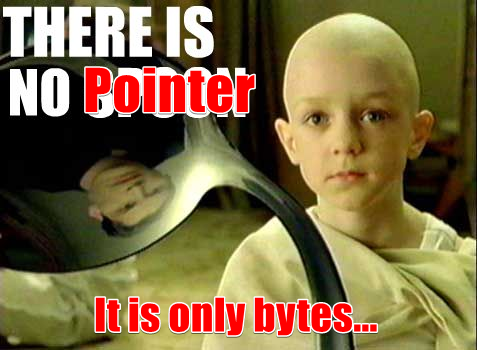
It is bytes all the way down....
-
-
tag as String
in VCL
17 hours ago, Uwe Raabe said:@PeterBelow It is even possible to inject new properties to the Object Inspector. In Cmon.DataSense.Design.pas I use this technique to add a DataSource and DataField property to supported controls. The additional data is stored in a special component (TDataSense) using a dictionary internally:
This is the right answer. You can see an example of this when you put a component on a TRelativePanel. Notice how there are additional properties after Width in the Object Inspector...
-
tag as String
in VCL
This might be an even worse idea....
{$IFDEF Win64} type TBadIdea = array [0..7] of AnsiChar; {$ENDIF} {$IFDEF Win32} type TBadIdea = array [0..3] of AnsiChar; {$ENDIF} function ReadTagString(Tag: NativeInt): String; var BadIdea: TBadIdea absolute Tag; begin Result := string(BadIdea); end; function WriteTagString(Tag: String): NativeInt; var BadIdea: TBadIdea absolute Result; begin for var i := 1 to SizeOf(NativeInt) do if i <= Length(Tag) then BadIdea[i-1] := AnsiChar(Tag[i]) else BadIdea[i-1] := #0; end; procedure TFormEvenWorse.btnSetClick(Sender: TObject); begin Tag := WriteTagString(edtValue.Text); edtValue.Text := ''; end; procedure TFormEvenWorse.btnReadClick(Sender: TObject); begin edtValue.Text := string(ReadTagString(Tag)); end;
There should be better handling of Ansi vs Unicode strings. Technically if you are only going to store characters you could make more efficient use of the bytes.
-
I was talking to someone the other day about this too. I had thought about creating an IDE add-in to effectively "lock the form," where it ignores all those "accidental" changes. I think it would be really useful to also ignore things like active tab in the tab control, etc. Usually when I'm submitting changes in source control I only want to submit the minimum changes for the fix I made, but then I want to make sure that that subset works, so I have to revert unneeded changes, test that code state, and then submit it. So a filter or lock would be really helpful.
-
 3
3
-
-
9 hours ago, Tommi Prami said:GetIT Seems to be down... Are the GetIT based installer and ISO installer compatible with each other. At least they used not to be??
Yes they are @Tommi Prami. I forget what version the incompatibility was fixed, but the installer still says they aren't compatible, but I've successfully switched during an update.
-
 1
1
-
-
GetIt 12 is down right now. So you can't install anything from GetIt.
-
With 12.2 Patch 1 just dropping, we've all spent some time updating. I have a process for updating, but I'm always curious what everyone's process is. I'll share mine:
- Ideally I have a complete backup of my system
-
Backup my activation/license files: "C:\ProgramData\Embarcadero" (I just zip files and folders including hidden)
- Your activation should still work after a recovery if your computer name doesn't change
-
Backup settings with MigrationTool "C:\Program Files (x86)\Embarcadero\Studio\23.0\bin\migrationtool.exe"

- I used to always export the registry too, but haven't that in a while. Might still be useful.
- Computer\HKEY_CURRENT_USER\Software\Embarcadero\BDS\23.0
-
Manually backup GetIt Packages via GetItCmd (ran from the RAD Studio Command Prompt):
getitcmd -l= -f=installed >getitpkgs.txt -
Uninstall all the GetIt packages (Parnassus seems to be the most likely to cause trouble, but FMXLinux has hit me too, so I just uninstall them all)
-
Get the packages names from the manual backup
getitcmd -u=FmxLinux-12-1.78;ParnassusCoreEditor-12-1.6.4.1;CodeSite-5.4.4;AWSSDKforDelphi-12
-
Get the packages names from the manual backup
-
Start the installation
- Let it automatically uninstall, keeping the settings (the default)
-
Before it starts the install I manually delete the CatalogRepository folders
- C:\Users\jim\Documents\Embarcadero\Studio\23.0\CatalogRepository
- C:\Users\Public\Documents\Embarcadero\Studio\23.0\CatalogRepository
-
Manually reinstall the GetIt packages
getitcmd -i=FmxLinux-12-1.78;ParnassusCoreEditor-12-1.6.4.1;CodeSite-5.4.4;AWSSDKforDelphi-12 - The MigrationTool doesn't seem to like restoring to the same version it was backed up from, which is frustrating, but maybe I'm missing something. When I restore from a backup of 12.x then 12.x is missing from the dropdown list. I've never had to use it, but in theory I figure I could edit the backup file to make it work if worse comes to worse.
-
 5
5
-
On 10/19/2024 at 3:27 AM, Rafal.B said:It works 👍
It works for me too, but it isn't an official solution, so it may not work for everyone in all circumstances. Likewise, it is possible there are some incompatible use cases in 12.2.
-
This might work
getitcmd -i=fmxlinux-12-1.78
this is the version that is installed in 12.1, and if you use the getitcmd from the RAD Studio command-prompt it should install and work.
-
 2
2
-
 7
7
-
-
Great, thanks everyone!
-
I found myself down the rabbit hole of IEEE 754 standard on Floating-Point numbers (which Delphi follows), specifically the different values of NaN.... There are multiple potential internal values for NaN, all which evaluate as fsNaN. I found what I believe to be a bug, but I'm curious if anyone else has any thoughts on it. (As I was writing this up I discovered the behavior is only on Win32, so I've decided it must be a bug (RSS-1831), but sharing here anyway because I find the details interesting.)
In short: IEEE 754 distinguishes between Signaling NaN and Quiet NaN. Delphi defaults to Quiet NaN, but you can make it signaling manually. Unfortunately, when a float is returned from a function in the Win32 compiler, the quiet flag is set. I was testing to see if Delphi converted it into an exception, which would be understandable, but instead it just silently sets the quiet flag, suppressing the signaling state.
Testing in FPC, Delphi Win64, or Delphi Linux64, and the flag value doesn't change, which is what I would expect.
Detailed explanation and background
IEEE 754 divides a float into 3 parts
- Sign
- Exponent
- Fraction
For a NaN the Exponent bits are all set ($FF in Single), any value for sign (Delphi's default NaN has it set, making it a negative NaN, which doesn't carry any specific significance), and the Fraction is anything but all 0. This allows for quiet a few different values that all are treated as NaN. What may distinguish the different values of NaN is signaling vs. quiet NaN. The Quiet flag is usually the first bit of the fraction. When the quiet flag isn't set, then it is considered a signaling NaN.
The internal the internal representation of a NaN is typically displayed as follows (notice this is reversed from how Delphi stores the value in memory to put the most significant bit first.)
S Exponent Fraction 1 | 11111111 | 10000000000000000000000 ^ The quiet flag
So a signaling NaN is has an value for Faction without that first bit set.
What I found in Delphi Win32 is it handles all these values correctly, except that if the quiet flag is missing (making it a signaling NaN), then when the value is returned from a function the quiet flag is set.
Before returning from function: (Notice that the debugger recognizes it as negative NaN. Very nice!)
This is 1 | 11111111 | 00000000000000000000001 in binary, which doesn't have the Quiet flag set
1 | 11111111 | 10000000000000000000001
After return it isn't the Default NaN, but it is the previous value with the Quiet flag set.Here is some sample code that demonstrates the behavior
// The Delphi Win32 (tested in Delphi 12.1 and 12.2) sets NaN's quiet flag when are returning from a function // More information on IEEE 754 NaN https://en.wikipedia.org/wiki/NaN#Quiet_NaN // More information on this code: https://gist.github.com/jimmckeeth/2b4f017917afbae88ee7a3deb75b4ef7 program NaNSignalBug; {$APPTYPE CONSOLE} uses System.SysUtils;//, SingleUtils in 'SingleUtils.pas'; function is_Signaling(const NaN: Single): Boolean; begin Result := NaN.IsNan and (NaN.Frac and $400000 = 0); end; function NaNDetails(const Value: Single): string; begin if value.IsNan then begin if is_Signaling(value) then Result := 'NaN is Signaling' else Result := 'NaN is Quiet'; end else Result := 'Not a NaN'; end; procedure MakeSignaling(var NaN: Single); begin NaN.Exp := 255; NaN.Frac := NaN.Frac and not (1 shl 22); Assert(is_Signaling(NaN)); Writeln('Manipulated: ',NaNDetails(NaN),#9, '// Line 33'); end; // When a NaN is returned from a function the Signal bit is set function SignalingNaN: Single; begin Result := Single.NaN; Result.Frac := 1; MakeSignaling(Result); Assert(is_Signaling(Result)); Writeln(#9,'SignalingNaN Returning',#9'// Line 43'); end; function NestedNaN: Single; begin var NaN : Single := SignalingNaN; // The quiet bit was set Writeln('Returned: ',NaNDetails(NaN),#9, '// Line 50'); // without returning it from a function it works fine MakeSignaling(NaN); Writeln('Manipulated: ',NaNDetails(NaN),#9, '// Line 53'); Assert(is_Signaling(NaN)); Writeln(#9,'NestedNaN Returning ',#9,'// Line 55'); Exit(NaN); end; begin try Writeln(TOSVersion.ToString); Writeln('Used: ',SizeOf(NativeInt)*8,'-bit compiler'); var NaN : Single := NestedNaN; // The quiet bit was set Writeln('Returned: ', NaNDetails(NaN),#9,'// Line 66'); //Assert(is_Signaling(NaN)); // Fails on Win32 // without returning it from a function it works fine MakeSignaling(NaN); Writeln('Manipulated: ', NaNDetails(NaN),#9,'// Line 70'); Assert(is_Signaling(NaN)); except on E: Exception do Writeln(E.ClassName, ': ', E.Message); end; readln; end.
and here is the output
Windows 11 (Version 23H2, OS Build 22631.4169, 64-bit Edition) Used: 32-bit compiler Manipulated: NaN is Signaling // Line 33 SignalingNaN Returning // Line 43 Returned: NaN is Quiet // Line 50 Manipulated: NaN is Signaling // Line 33 Manipulated: NaN is Signaling // Line 53 NestedNaN Returning // Line 55 Returned: NaN is Quiet // Line 66 Manipulated: NaN is Signaling // Line 33 Manipulated: NaN is Signaling // Line 70and a more detailed look at the NaN values
Default NaN Value of : Nan Special : fsNaN Sign : TRUE Exponent : 255 Fraction : 4194304 Size : 4 InvertHex: $FFC00000 1 | 11111111 | 10000000000000000000000 ----------------- Singnaling NaN Value of : Nan Special : fsNaN Sign : TRUE Exponent : 255 Fraction : 1 Size : 4 InvertHex: $FF800001 1 | 11111111 | 00000000000000000000001 ----------------- Returned from Function Value of : Nan Special : fsNaN Sign : TRUE Exponent : 255 Fraction : 4194305 Size : 4 InvertHex: $FFC00001 1 | 11111111 | 10000000000000000000001
@David Heffernan it was suggested I tag you on this...
-
 2
2
-
My pallete library does complementary & triadic already. Still looking at expanding it.
-
On 7/1/2024 at 11:00 AM, Rollo62 said:In case of someone is overwhelmed from reality, you could consider to introduce several "dummy-mode levels",
I made the different color system boxes collapsible. When I add more I'll default to collapsing the less common ones, and make it based on preference.
On 7/1/2024 at 11:00 AM, Rollo62 said:Color theory is a science on its own.
Yes it is. I'm working on named colors and more palette options now.
-
 2
2
-
-
5 hours ago, Brandon Staggs said:YCbCr component video (and YUV too)
I was looking for more color spaces to add...
-
Right now it is a collection of features, but I hope you find it useful.
BTW, it was great meeting you in Amsterdam!
-
This is still a work in progress, but I'm really happy with how it is going so far so I thought I would share...
https://github.com/jimmckeeth/FMXColorDialog
There are a few custom components in the dialog, and there is a palette code library, plus there is a new CMYK color record. Just fun project to mess around with on vacation.
-
 15
15
-
 2
2
-
-
A agree, documenting is important, but I just didn't think of it as an "add-in."
-
I've added HelpNDoc to the overall list of the survey
https://forms.gle/xuFWpSrE5TDdordNA
I somehow missed the documentation category, so I'll need to do a follow up, but still good to go out and vote for it overall.
-
 1
1
-
 1
1
-
-
On 6/15/2024 at 1:37 AM, Anders Melander said:A single item for me so YMMV on the "essentialness".
The poll is to see which ones are most essential, but I think many of them game changers on their own. So one item is all it takes to be essential.
-
1 hour ago, Kas Ob. said:The survey is missing Nexus Quality Suite
Thanks, I will add it.
-
 1
1
-
-
![Delphi-PRAXiS [en]](https://en.delphipraxis.net/uploads/monthly_2018_12/logo.png.be76d93fcd709295cb24de51900e5888.png)


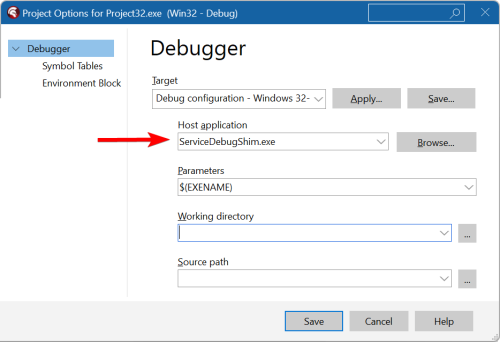
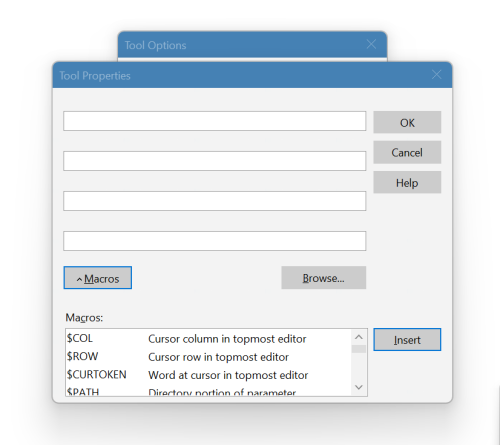
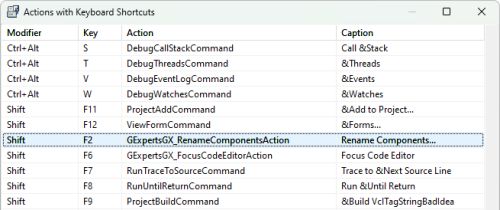
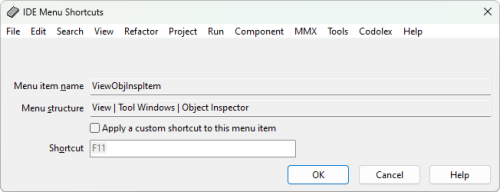
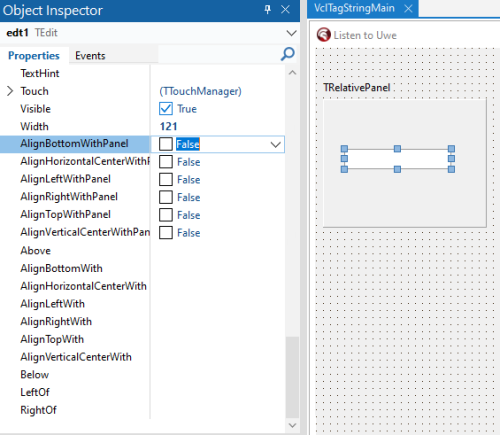

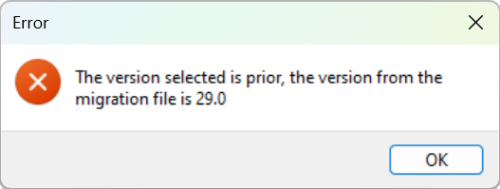


RAD Programmer Coding Challenge #1 - build a MineSweeper game in RAD Studio with a chance to with $500
in Tips / Blogs / Tutorials / Videos
Posted · Edited by Jim McKeeth
I hate reinventing the wheel..... Wanted to do something a little different. After a few iterations this is where I ended up...
https://github.com/jimmckeeth/MineSweeperHex
I want to dress up the UI some more. Double-click to restart (after game over).